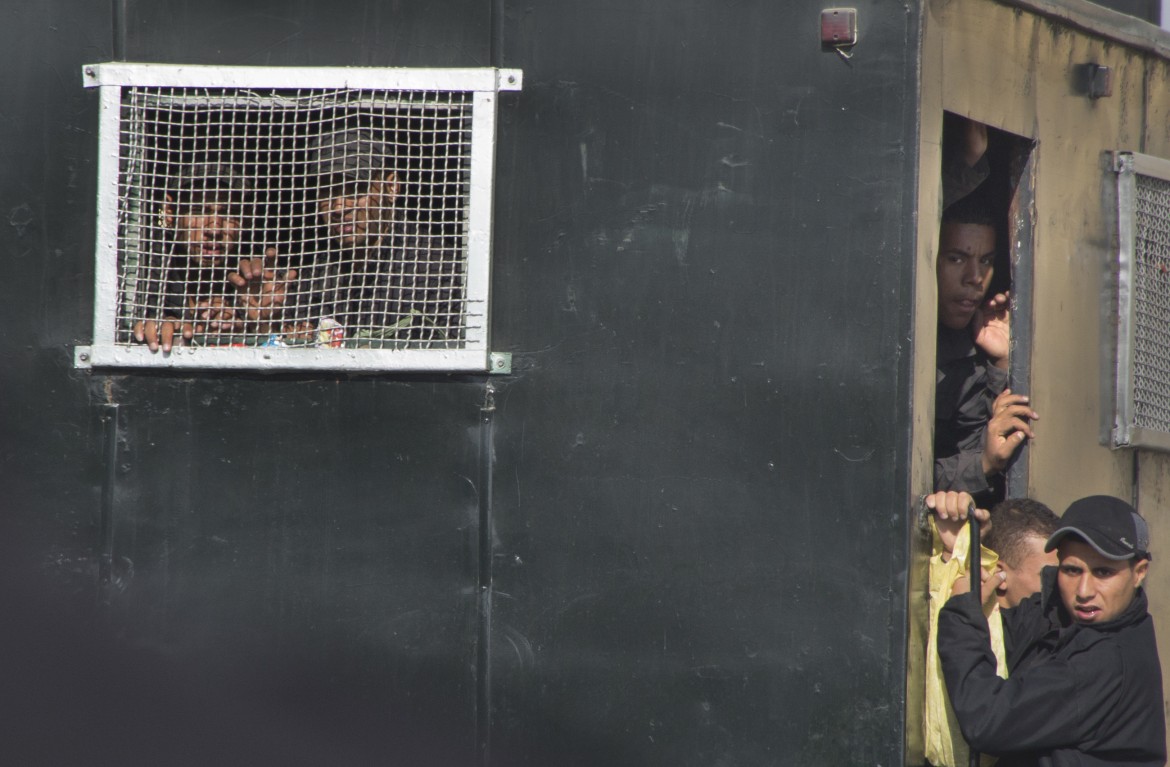Analysis
Egyptian prisons are filling up with anyone who speaks out
The UN appealed to Cairo to free prisoners in light of the epidemic. Instead, they arrested 15 people accused of spreading false news about the coronavirus. Work on al-Sisi’s mega-projects continues.

A Friday press note on Egypt issued by Rupert Colville, spokesperson for the UN High Commissioner for Human Rights, called for the country to free its imprisoned journalists and human rights defenders.
“We are […] very concerned about the overcrowded prisons in Egypt and the risk of the rapid spread of the COVID-19 virus among the country’s more than 114,000 inmates,” the statement reads.
It comes after an appeal by UN High Commissioner Michelle Bachelet to governments around the world to implement safety measures and protect the health of detainees.
So far, Iran has released around 100,000 people from its prisons, at least temporarily, Indonesia has released 30,000, while Turkey is preparing to release 90,000, but not political prisoners or journalists.
“We […] also urge the Egyptian Government to follow the lead of other states around the world and release those convicted of non-violent offences and those who are in pre-trial detention, who make up just below one third of those in jail,” the UNHCR statement continues.
It also directly calls for the release of all those “who are arbitrarily detained due to their political or human rights work.”
In the country’s prisons, overcrowding is compounded by poor hygiene conditions and the denial of access to adequate medical care and treatment for prisoners. The consequences of a spread of the virus would be devastating.
The United Nations also denounced the arrest of 15 Egyptian citizens accused of spreading false information. Anyone who publishes any information that is not in line with the government’s reports is now being punished with fines and detention. A doctor and a pharmacist were also among those arrested, guilty of denouncing the shortage of masks in Facebook videos.
Ruth Michaelson of The Guardian was ordered to leave the country after she published an article that reported a study based on mathematical models that showed that in reality, the number of people infected was much higher than those officially identified.
The official data, updated as of Tuesday evening, shows 1,322 infected, 259 recovered and 85 dead, with a constant increase in numbers.
Meanwhile, Hatem Abu el-Kassem, director of the National Cancer Institute, one of the most important cancer centers in Egypt, said that 12 nurses and three doctors there had tested positive for the coronavirus, increasing the fear of possible mass contagion among healthcare workers, especially after the first doctor died on March 29.
There was also concern among the military, after two high-ranking generals died from the virus. Both of the deceased were in charge of a major water engineering project. After the news, the army began to isolate soldiers on their return from the latest missions in the territory.
The schools and universities have been closed until mid-April, while shops remain open until 5 p.m. for now.
To get Egyptians to stay at home, al-Sisi has instituted a nightly curfew from 7 p.m. until 6 a.m. Anyone found in violation of the rules risks imprisonment, in addition to a fine of 4,000 Egyptian lira (about 235 euros).
However, there is no pause in the activity of the construction sector, which contributes 16% of the national GDP and employs 20% of the workforce, not counting undeclared workers (which are estimated at about 40%). Only a few precautionary measures have been taken, while construction continues, particularly in New Cairo, a city built up entirely from scratch, less than 30 minutes from the capital.
Much of the political support for al-Sisi’s mandate hangs in the balance with the success of this project: delaying its completion would be unacceptable, at least for now.
Originally published at https://ilmanifesto.it/nessun-rilascio-ma-nuovi-arresti-di-chi-dice-la-verita/ on 2020-04-07
